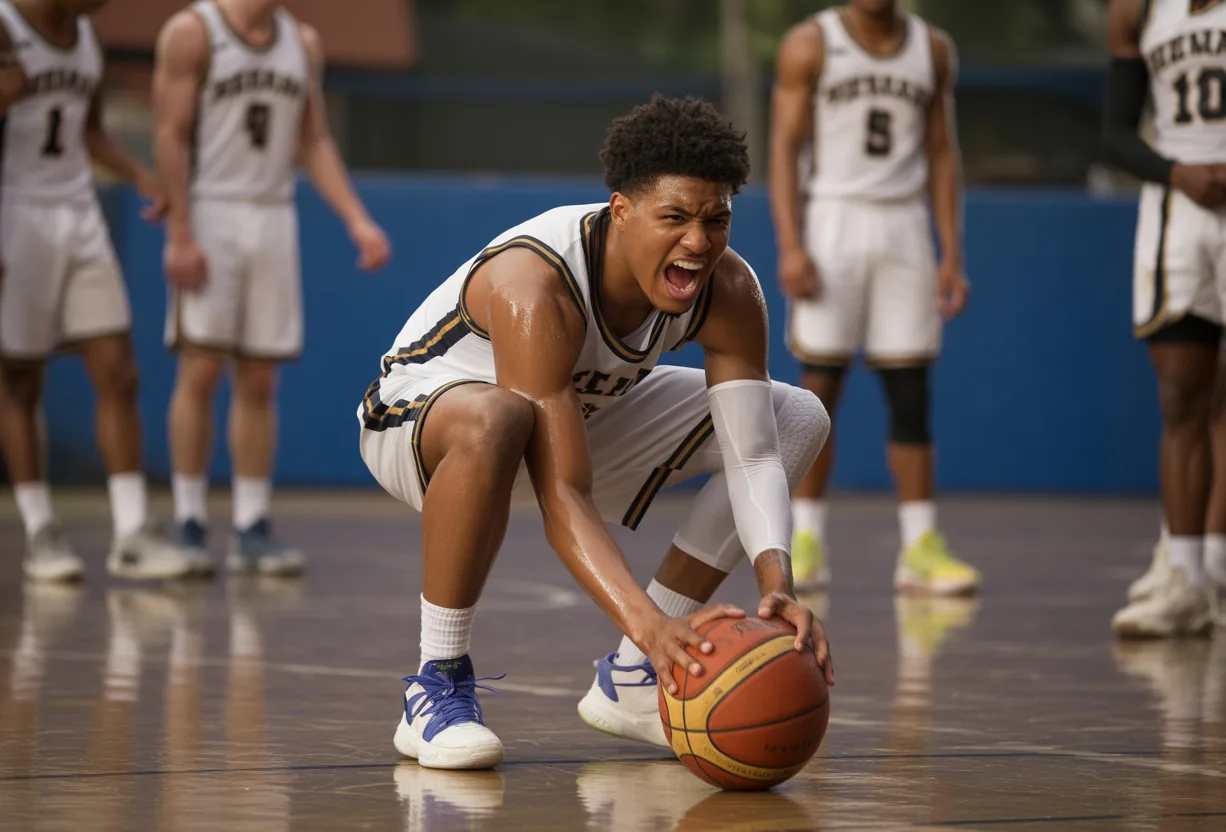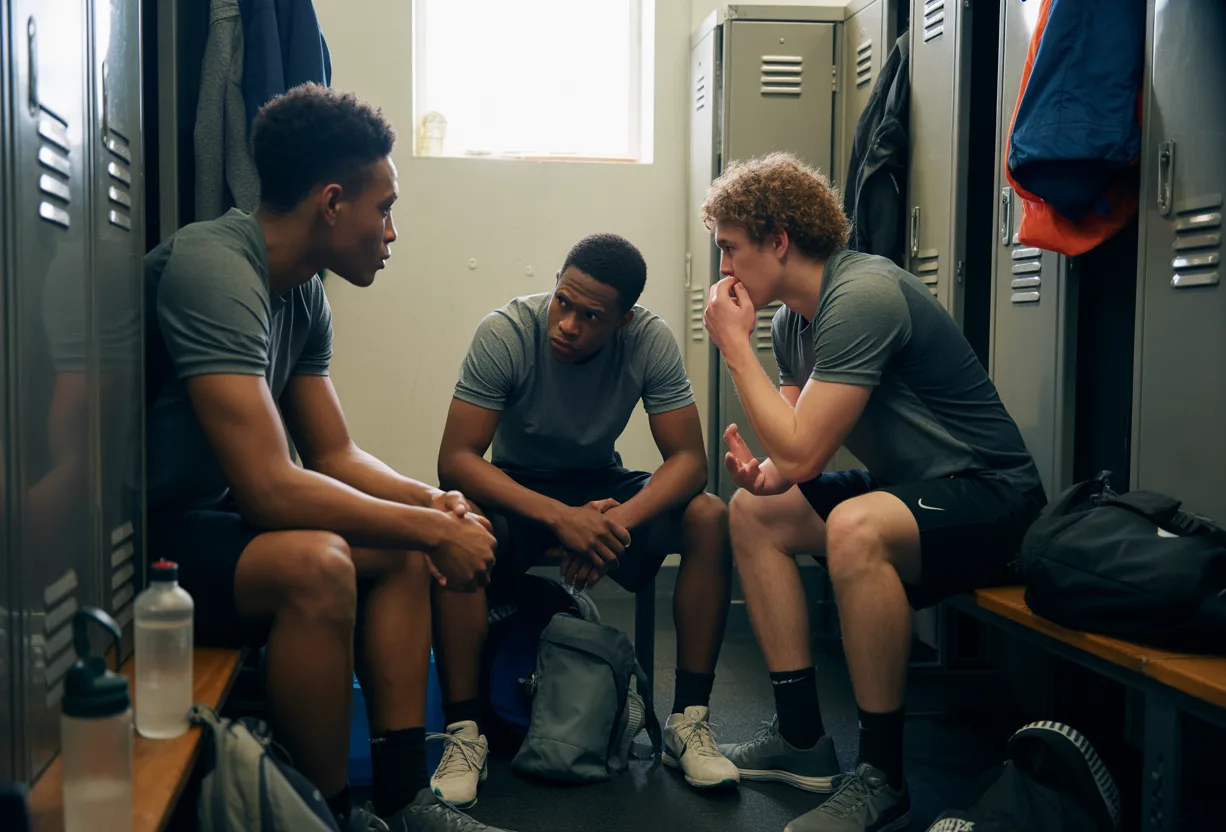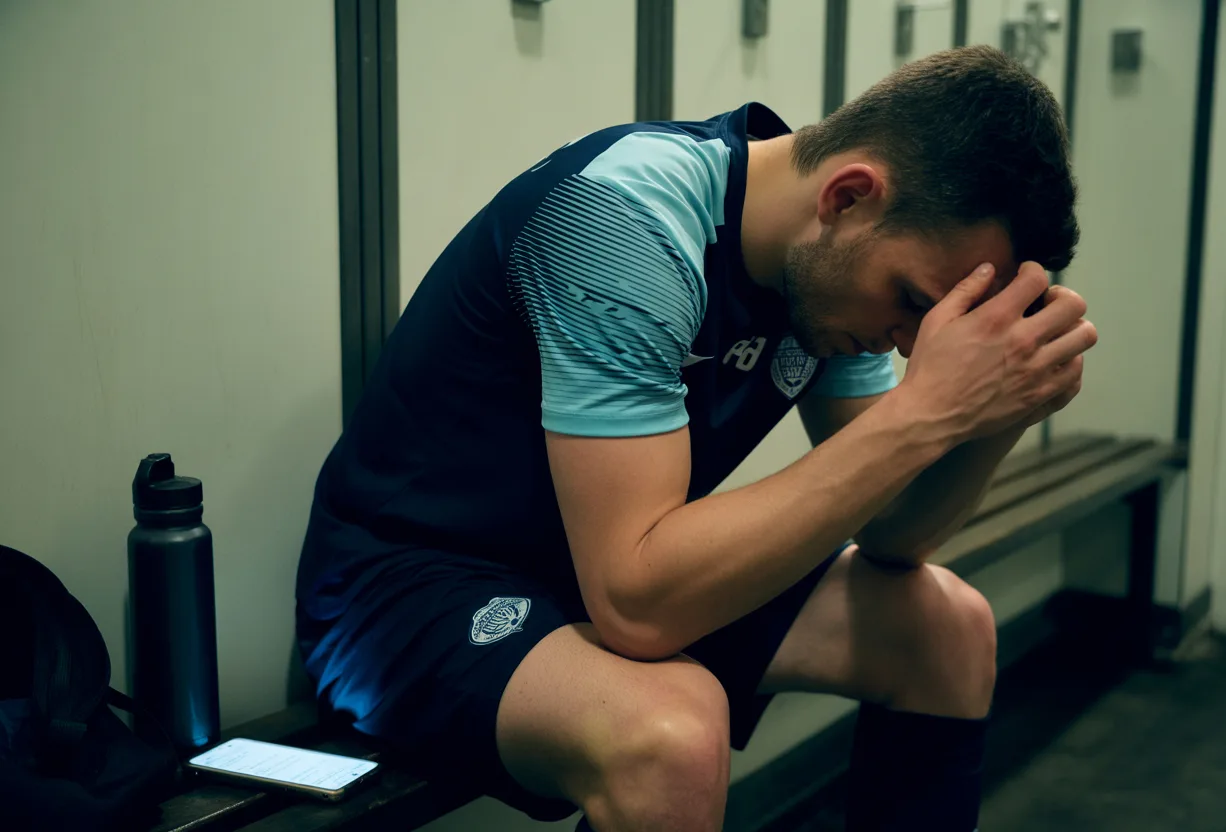Why Athletes Freeze Under Pressure
You dominate in practice—sharp, focused, unstoppable. But on game day? Everything changes. You freeze. You second-guess. You miss the plays you’ve nailed a thousand times. At Revibe Therapy, we see this all the time and it’s not because you’re weak or unprepared physically. It’s because your nervous system is running a different program when you’re under pressure.
This is where Sports Psychology comes in. Through Online Therapy, we work with athletes to close the gap between practice performance and real-world pressure. If you’ve ever asked yourself, “Why can’t I play the same way in competition?”, this post is for you.

What’s Actually Happening to Your Brain on Game Day
Let’s break it down: practice feels safe. You’re not being judged. There’s no scoreboard. No crowd. No final consequence.
But the game? The game feels like war.
The spotlight. The expectations. The fear of letting someone down. Your brain doesn’t enter flow, it goes straight into fight-or-flight mode. Fine motor skills vanish. Instinct gets hijacked by overthinking. You’re not “choking.” You’re responding to what feels like a real threat, even if it’s just a fear of embarrassment.
That pressure? It hasn’t been trained for. And that’s the difference.
The Real Reasons You Don’t Perform Under Pressure
Three emotional patterns keep athletes stuck:
1. Overthinking in competition.
Instead of flowing, you analyze. Instead of reacting, you hesitate. You’re worried about how you look, not what you need to do.
2. No emotional conditioning.
You’ve trained the body—but not your emotions. You didn’t rehearse being watched. You didn’t rehearse failing and recovering.
3. Fear of judgment.
You care more about what others think—parents, coaches, teammates—than staying locked in. That fear builds pressure. And pressure destroys presence.
Game day exposes what hasn’t been emotionally trained. If you’ve never practiced failure, recovery, or pressure, your nervous system will default to panic.

How to Fix Game Day Anxiety (Without More Reps)
At Revibe Therapy, we teach athletes how to mentally rehearse chaos before it hits. That starts every morning, not just before a game.
You don’t fix performance anxiety by grinding harder. You fix it by mastering your internal state.
Here’s what that looks like:
- Self-regulation practices.
Start the day with breathwork, visualization, or even prayer. Not to calm yourself—but to rehearse pressure. To build your tolerance to stress. - Mental imagery training.
Picture yourself missing. Recovering. Succeeding under pressure. Practice staying calm when it matters most. - SCBG Protocol.
At Revibe Therapy, we use Sacrificial and Compensational Behavioral Goals (SCBGs)—a structured schedule that strengthens discipline by starting your day with what you resist most. You don’t wait for motivation. You act with intention. - Train the brain before the body.
Mental training is the new warm-up. Imagery, breath, and presence come first, before lifting, running, or shooting.
This isn’t hype. It’s discipline. One breath, one rep at a time.

When Tools Aren’t Enough
If you’ve done the work, built your SCBGs, practiced your breathing, rehearsed your movements, and still find yourself paralyzed on game day, the block may run deeper.
That’s when regression-based therapy can help. Working with a Sports Psychology coach, you can revisit the root emotional memory that’s holding you back. Exposure therapy, guided imagery, and subconscious pattern rewiring can remove the emotional trigger altogether.
This is where Online Therapy rooted in Sports Psychology can provide breakthroughs that surface-level strategies can’t.
The Takeaway
You don’t need to hope your nerves disappear. You need to train for pressure the same way you train for performance. Rehearse the hard parts. Prepare for fear. Visualize recovery. Build emotional strength, not just physical skill.
📺 Watch the full video here
📘 Explore the SCBG Protocol
🌀 See the Emotional Patterns Chart
📞 Book a session
Stop hoping the pressure will go away. Start training for it.
— Revibe Therapy






 Most often it is not the situation, but how we think about the situation that causes our feelings. How we think about situations is based on what we have learned and experienced in the past. Over time we may begin to react in ways that do not help us, and start feeling stuck and unhappy.
Most often it is not the situation, but how we think about the situation that causes our feelings. How we think about situations is based on what we have learned and experienced in the past. Over time we may begin to react in ways that do not help us, and start feeling stuck and unhappy. Dr. Ivey, Psy.D. completed her doctorate in Clinical Psychology with a concentration in Organizational Consulting at Pacific University’s School of Graduate Psychology in Oregon. For her dissertation, Dr. Ivey conducted qualitative research on the effects of workplace discrimination and microaggressions on minority Veterans’ overall job satisfaction with their military career. She completed the APA-accredited Psychology Internship training program and Postdoctoral Residency at the Orlando VA Healthcare System.
Dr. Ivey, Psy.D. completed her doctorate in Clinical Psychology with a concentration in Organizational Consulting at Pacific University’s School of Graduate Psychology in Oregon. For her dissertation, Dr. Ivey conducted qualitative research on the effects of workplace discrimination and microaggressions on minority Veterans’ overall job satisfaction with their military career. She completed the APA-accredited Psychology Internship training program and Postdoctoral Residency at the Orlando VA Healthcare System. I know you’re stressed and exhausted while trying to keep up with the world’s go go go trials, trying to do it all perfectly. This “hustle” mentality makes all of us prone to mistakes and poor decisions. Your mind is overthinking at such a high pace by now that you no longer know where to find the off button, or recall when you turned it on in the first place. Trust me, I’ve been there, and in that dark place is where you start to feel worried and fearful about the future because you don’t feel in control of the now. Sound familiar?
I know you’re stressed and exhausted while trying to keep up with the world’s go go go trials, trying to do it all perfectly. This “hustle” mentality makes all of us prone to mistakes and poor decisions. Your mind is overthinking at such a high pace by now that you no longer know where to find the off button, or recall when you turned it on in the first place. Trust me, I’ve been there, and in that dark place is where you start to feel worried and fearful about the future because you don’t feel in control of the now. Sound familiar? Often, when we seek support through therapy, we seem to underestimate the power of our own role in the healing process. We have all carried metaphorical luggage filled with experiences and events that have impacted our life. I know that it has been hard for you to seek support in untangling those moments from the past that now provoke stress, anxiety, frustration, anger, loneliness, sadness, guilt, depression, or hopelessness. The fact that you are reading this means that you have the intention to become the best version of yourself.
Often, when we seek support through therapy, we seem to underestimate the power of our own role in the healing process. We have all carried metaphorical luggage filled with experiences and events that have impacted our life. I know that it has been hard for you to seek support in untangling those moments from the past that now provoke stress, anxiety, frustration, anger, loneliness, sadness, guilt, depression, or hopelessness. The fact that you are reading this means that you have the intention to become the best version of yourself.